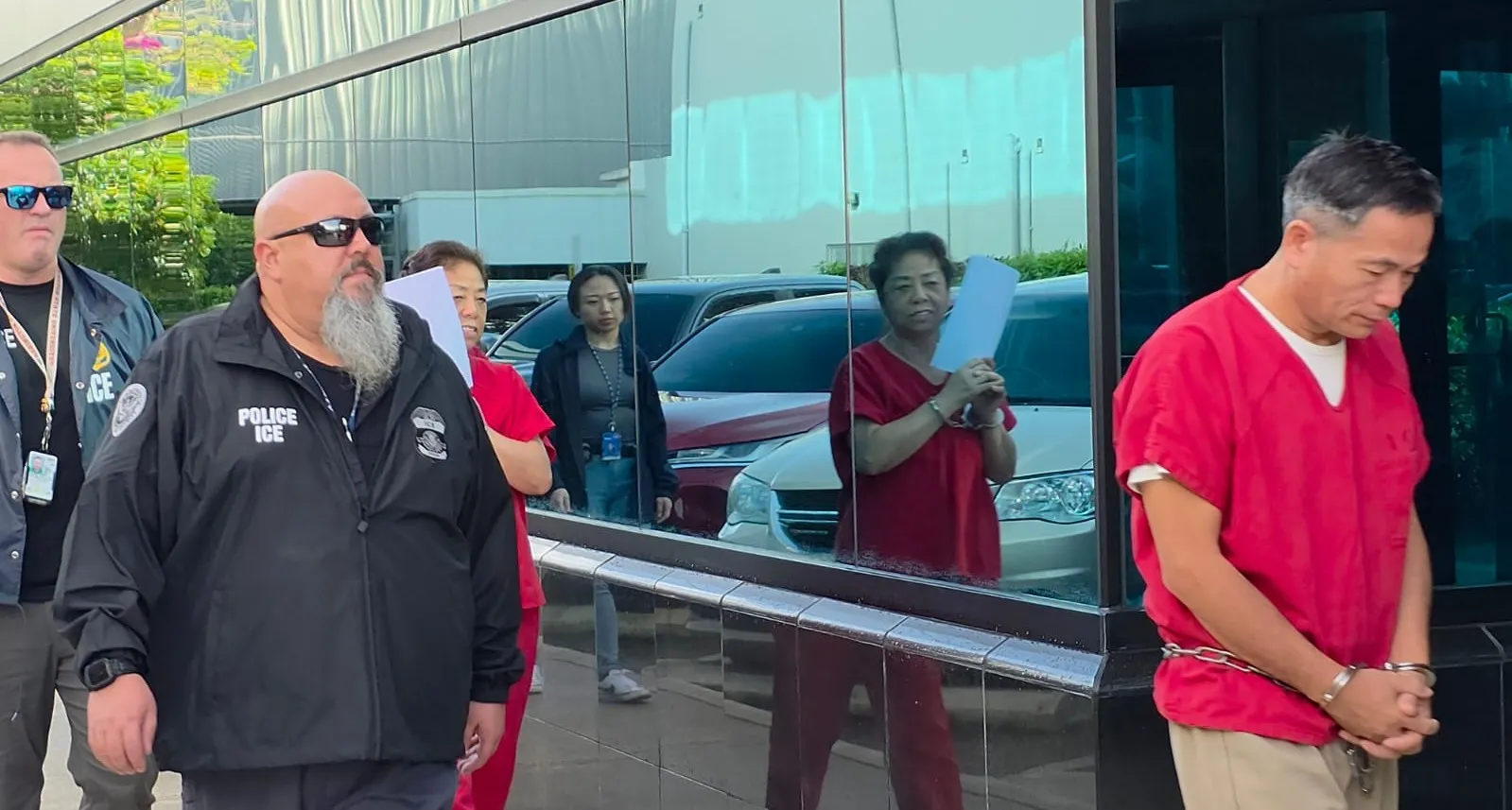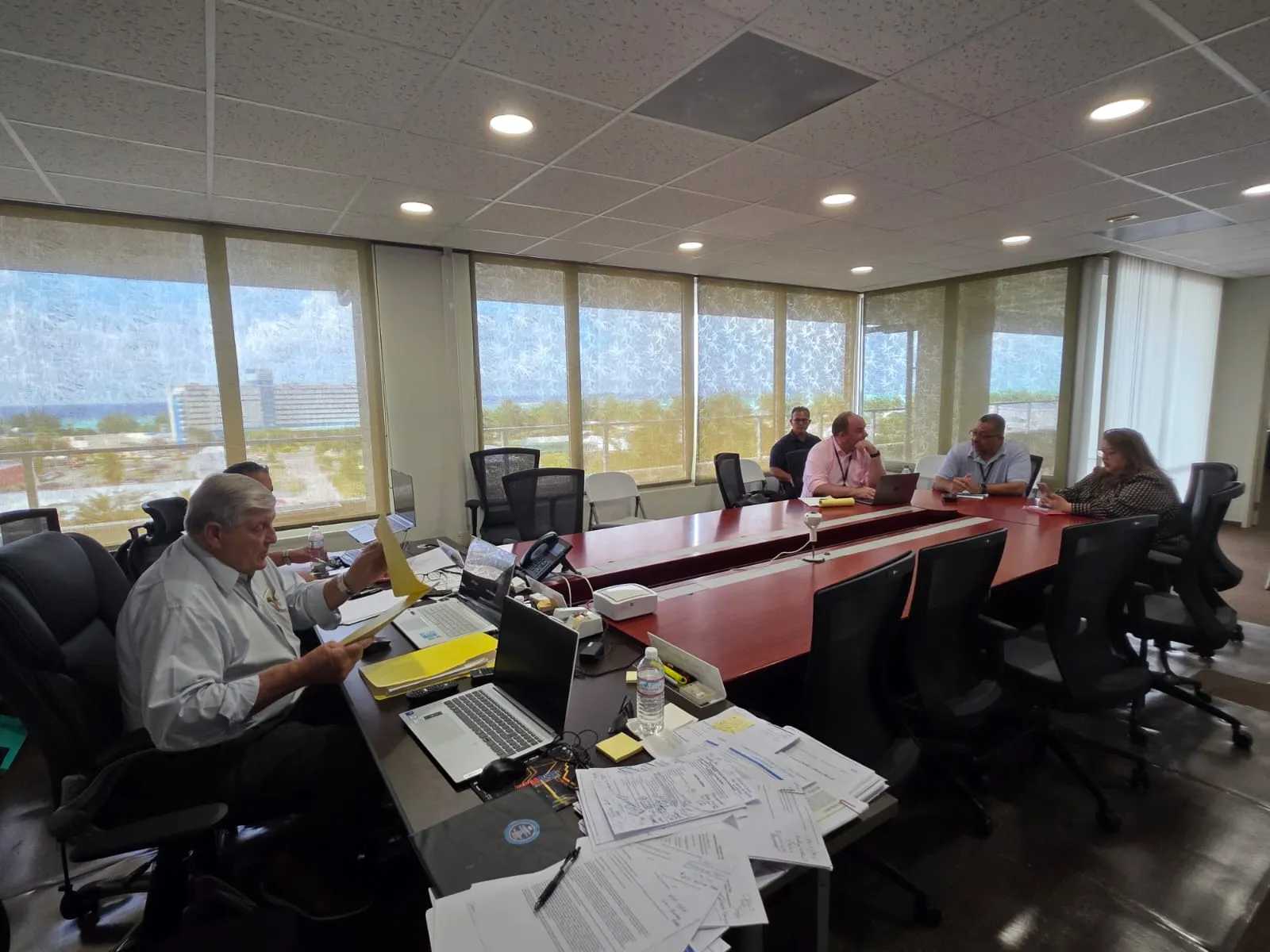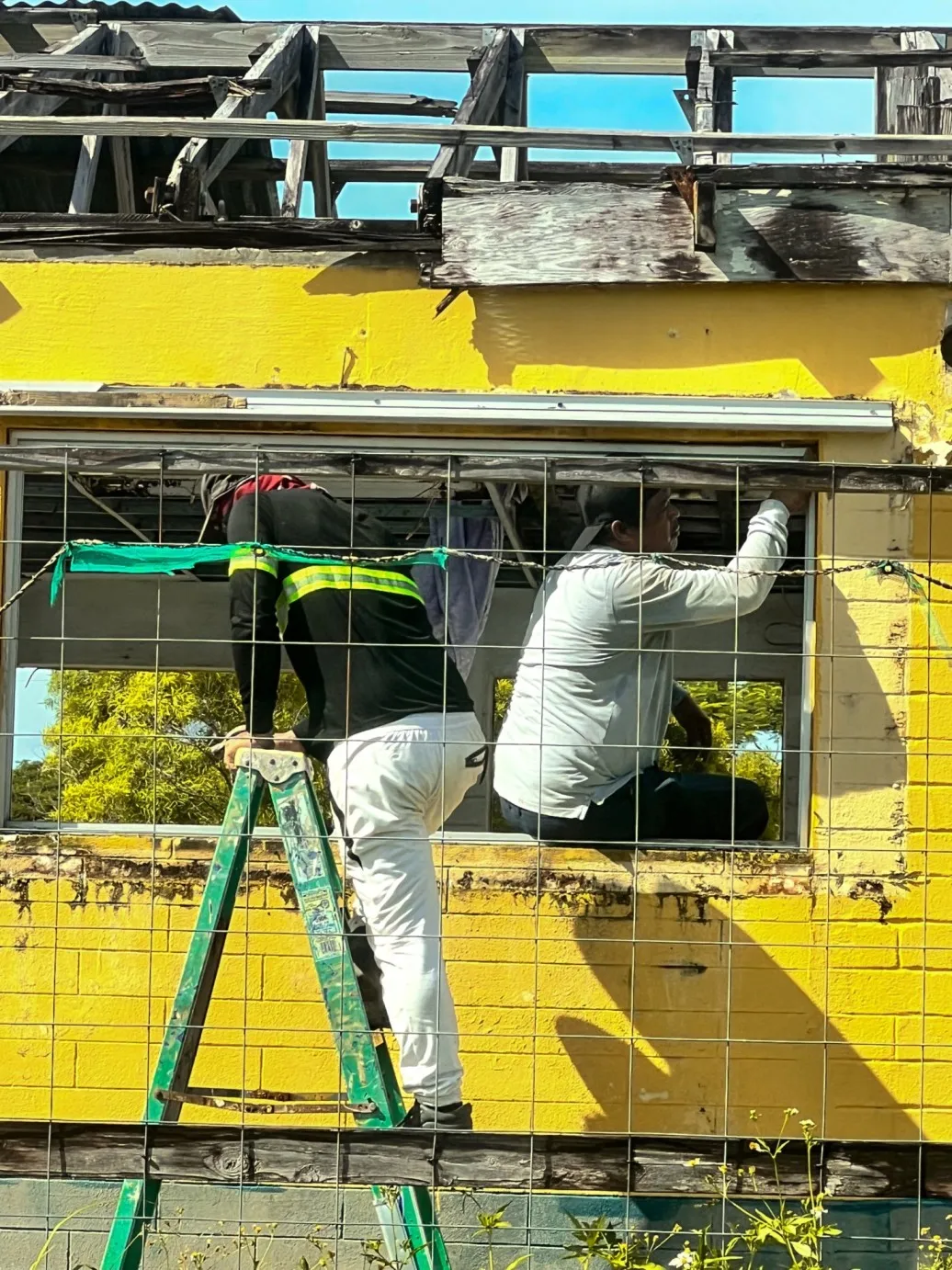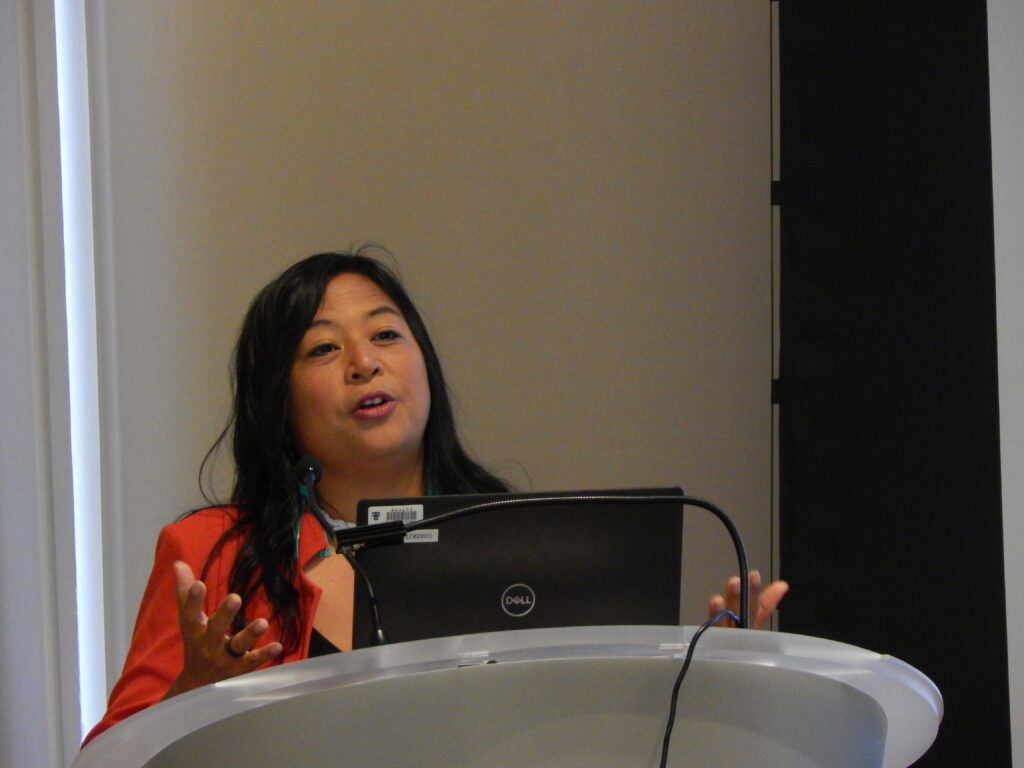(OPD) — From May 2 to 5, a CNMI delegation comprising several government agency heads, their teams, and elected officials were in San Francisco, California, to attend a Zero Waste training facilitated by the U.S. Environmental Protection Agency Region 9
Making up the CNMI delegation were representatives from the Office of Planning and Development, the Department of Public Works, the Bureau of Environmental and Coastal Quality, the Universal Garbage Collection Task Force, the Office of the Mayor of Tinian & Aguiguan, the Office of the Mayor of the Northern Islands, and other officials.
As defined by the Zero Waste International Alliance, Zero Waste is the conservation of all resources by means of responsible production, consumption, reuse, and recovery of products, packaging and materials without burning and with no discharges to land, water, or air that threaten the environment or human health.
For the CNMI delegation, the Zero Waste training in San Francisco was invaluable as a means of giving first-hand experience to what is possible after several decades of work towards achieving Zero Waste in California.
Additionally, the training brought focus to the importance of synergy amongst our community to make achieving Zero Waste as effective as possible. From the households that separate their waste prior to it being collected, to the lawmakers that create and support policies that support Zero Waste efforts, and to Zero Waste practices being integrated in the creation and operation of built infrastructure, achieving Zero Waste requires effort and collaboration from the individual to the organizational level.
Throughout the week, the delegation was given first-hand examples of the Bay Area’s efforts towards achieving Zero Waste through presentations by local organizations and EPA Region 9; a walking tour in downtown San Francisco to learn more about the city’s sustainable built infrastructure; and touring various recycling, composting, and repurposing facilities in the Bay Area.
One noteworthy guest presentation was by Angelina Vergara, a program manager for StopWaste. StopWaste is a public agency that aims to reduce waste at homes, at work, and at schools in Alameda County in California.
Vergara first shared with the CNMI delegation that she has personal ties to the CNMI, and that she has previously connected with Tanapag Middle School principal Hilda Rios to discuss school and community outreach activities.
In Vergara’s presentation, one program that resonated with the CNMI delegation was StopWaste’s field trips to transfer stations, where 4th graders become “garbologists” and get hands-on experience with what happens to their waste and where it goes. After her presentation, the topic of authentically engaging with the youth was discussed at length among the CNMI delegation and EPA.
As a result of these guest presentations, important discussions on other topics — such as the need to improve enforcement practices and ensuring that materials bans are implemented with alternative plans — also took place.
As for the site visits, some notable facilities included Marin Sanitary Services in northern San Francisco, which offers Dual Sort Recycling as one of its many other solid waste services for its residential and commercial customers. As part of Dual Sort Recycling, Marin Sanitary Services has partitioned, two-in-one recycling bins and specially designed garbage trucks that separate recycled bottles, cans, and containers from paper products.
Another noteworthy site visit was to Napa Recycling & Composting Facility in the Napa Valley area, which uses state-of-the-art technology at both its recycling and composting sites.
For recycling, the facility uses artificial intelligence and robotics to identify and separate recyclables from non-recyclables. For composting, the Napa facility uses an energy-efficient aeration system that controls odors coming off from large compost piles and keeps internal oxygen and temperature levels of these compost piles at optimal levels. With the aeration system, the facility can produce and maintain large amounts of high-quality compost while also keeping odors down for the surrounding area.
Now returning home with more insight on Zero Waste and with stronger ties between local and federal partners, the CNMI delegation continues with ongoing Zero Waste-related work in the CNMI. Currently, the CNMI is in the final development and permitting stages for a composting site on Tinian and Rota, and for two more citizen convenience centers on Saipan.
The Zero Waste Training in San Francisco, California is relevant to Sustainable Development Goals or SDGs #12: Responsible Consumption and Production, and #17: Partnerships for the Goals.
Under SDG#12, which is found in the CNMI’s Comprehensive Sustainable Development Plan, goals for the CNMI include developing an integrated solid waste management plan by 2025 and diverting at least 50% of the CNMI’s recyclable waste away from landfills.
While much still needs to be done in the CNMI to achieve Zero Waste, unified capacity building and visioning opportunities such as the training in San Francisco lay the groundwork for what is to come.
In the context of SDG #17, the Zero Waste Training served to keep CNMI efforts unified and helped with strengthening existing and establishing new working relationships.
The SDGs are discussed in detail in the CSDP found here: https://opd.gov.mp/assets/2021-2030_cnmi_csdp.pdf
Those seeking to learn more about ongoing projects and other current events can visit the OPD website at opd.gov.mp and can email planning@opd.gov.mp
More information on the Zero Waste Training in San Francisco, California will be part of a subsequent press release.

StopWaste program manager Angelina Vergara presents to the CNMI delegation during Day 1 of the Zero Waste training facilitated by the U.S. Environmental Protection Agency Region.
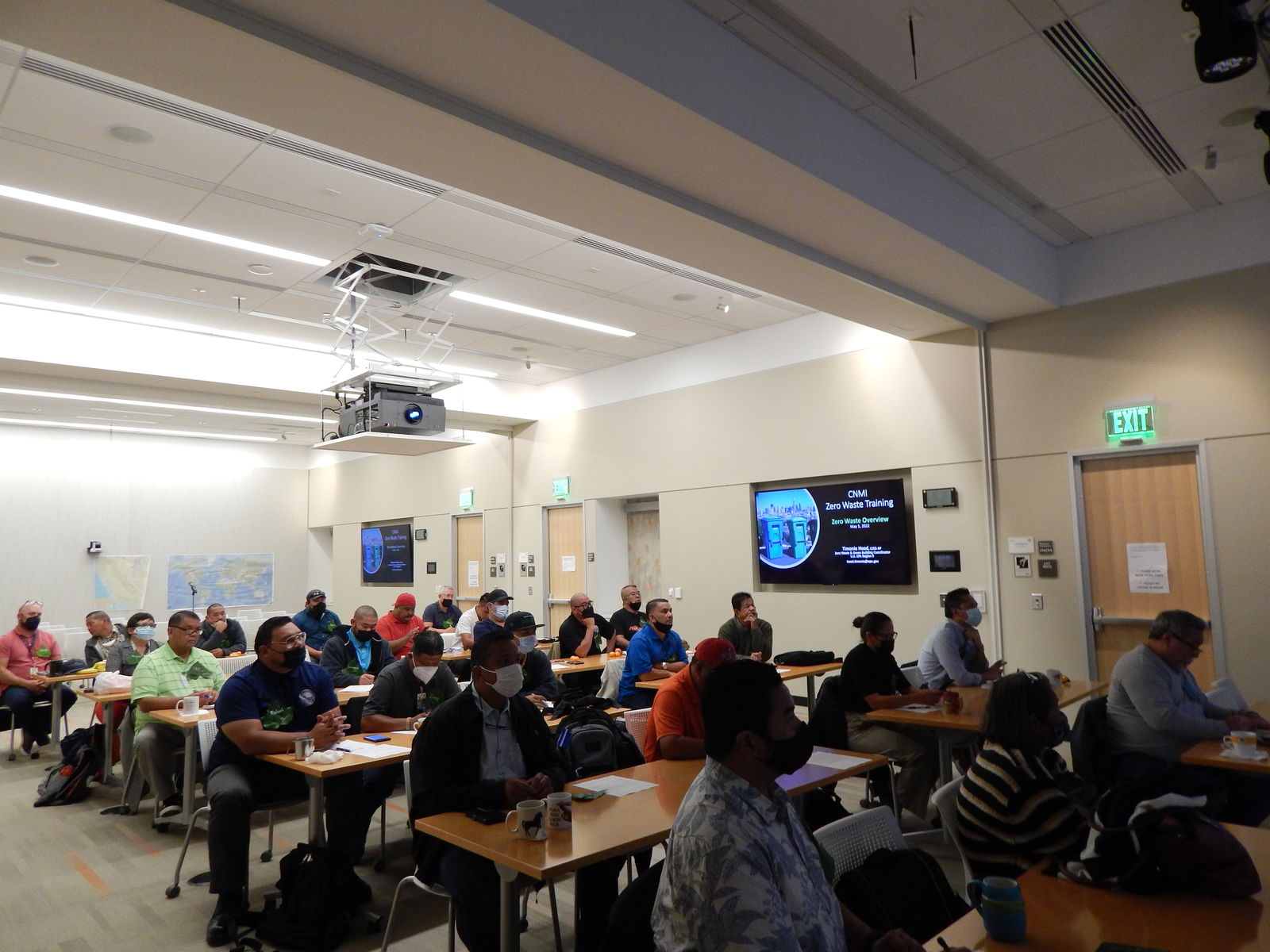
A CNMI delegation comprising several government agency heads, their teams, and elected officials attend classroom-style training sessions at the U.S. Environmental Protection Agency Region 9 office during Days 1 and 2 of the Zero Waste training in San Francisco, California. The training, which ran from May 2 to 5, was facilitated by EPA Region 9.
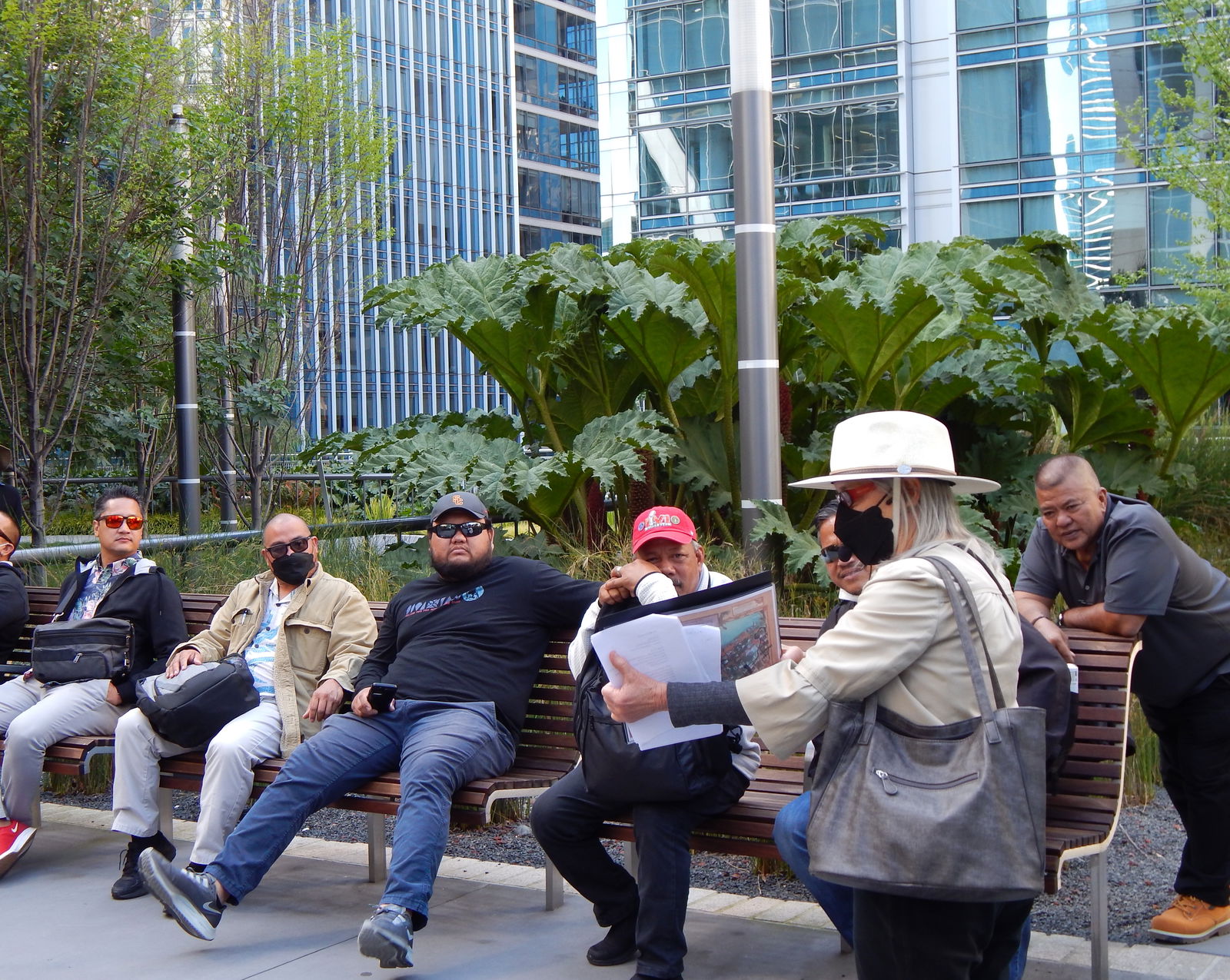
Green Building Tours tour guide Candice Kollar presents more details on the Salesforce Transit Center, Salesforce Park, and the other green buildings in downtown San Francisco during Day 2 of the Zero Waste training held in San Francisco, California. Also in photo, from left: Office of Planning and Development deputy director Christopher A. Concepcion, director of the Administrative Services Division of the Department of Public Works Peter P. Camacho, resident director of the Department of Public Works on Rota Deron Mendiola, Mayor of Tinian and Aguiguan Edwin P. Aldan, Senate President Jude U. Hofschneider, and DPW Solid Waste Management Division director Blas T. Mafnas.
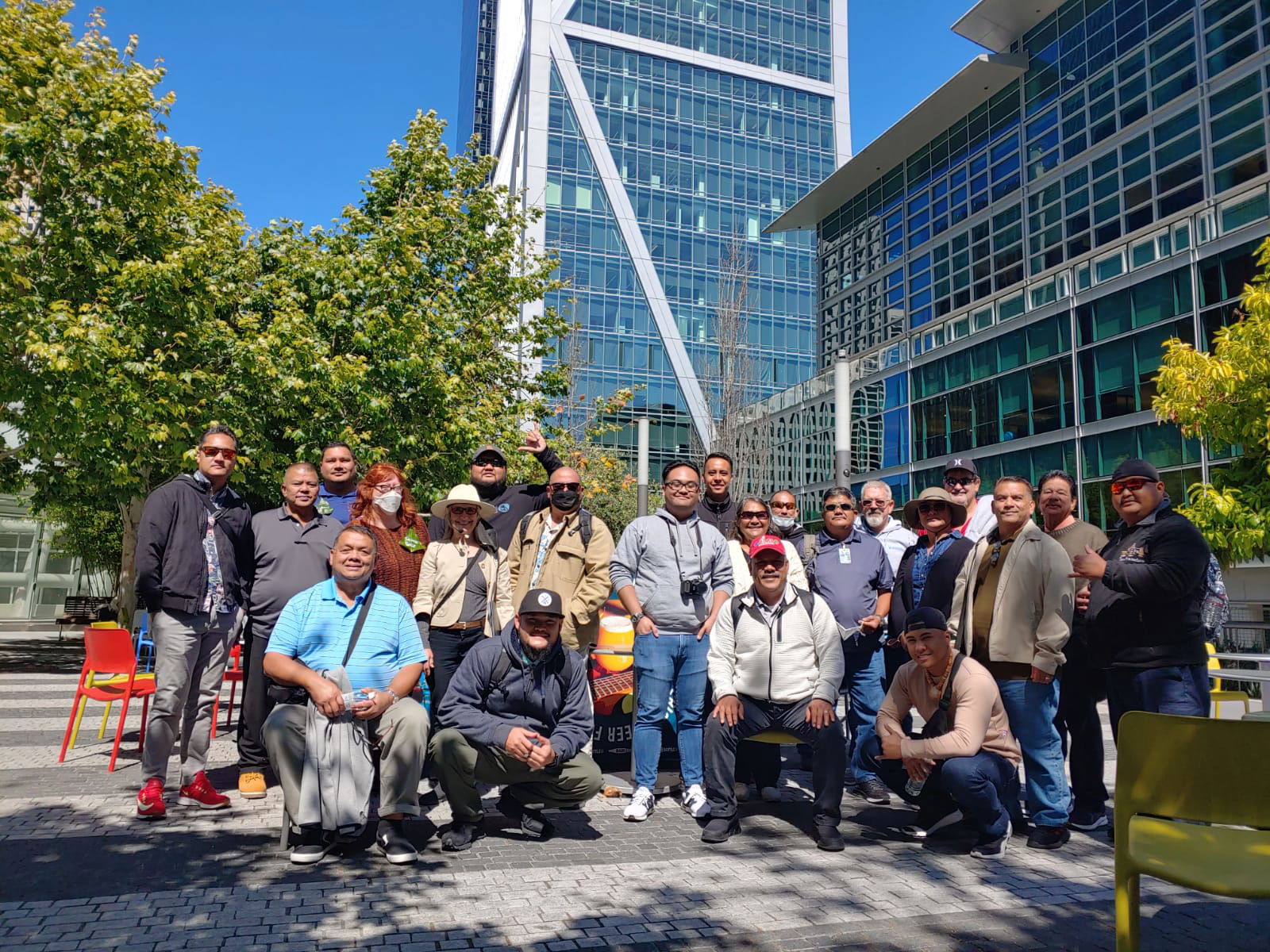
Members of the CNMI delegation take a group photo at Salesforce Park during Day 2 of the CNMI Zero Waste training held in San Francisco, California. Also in photo are Green Building Tours tour guide Candice Kollar and U.S. Environmental Protection Agency Region 9 Zero Waste & Green Building Coordinator Timonie Hood.
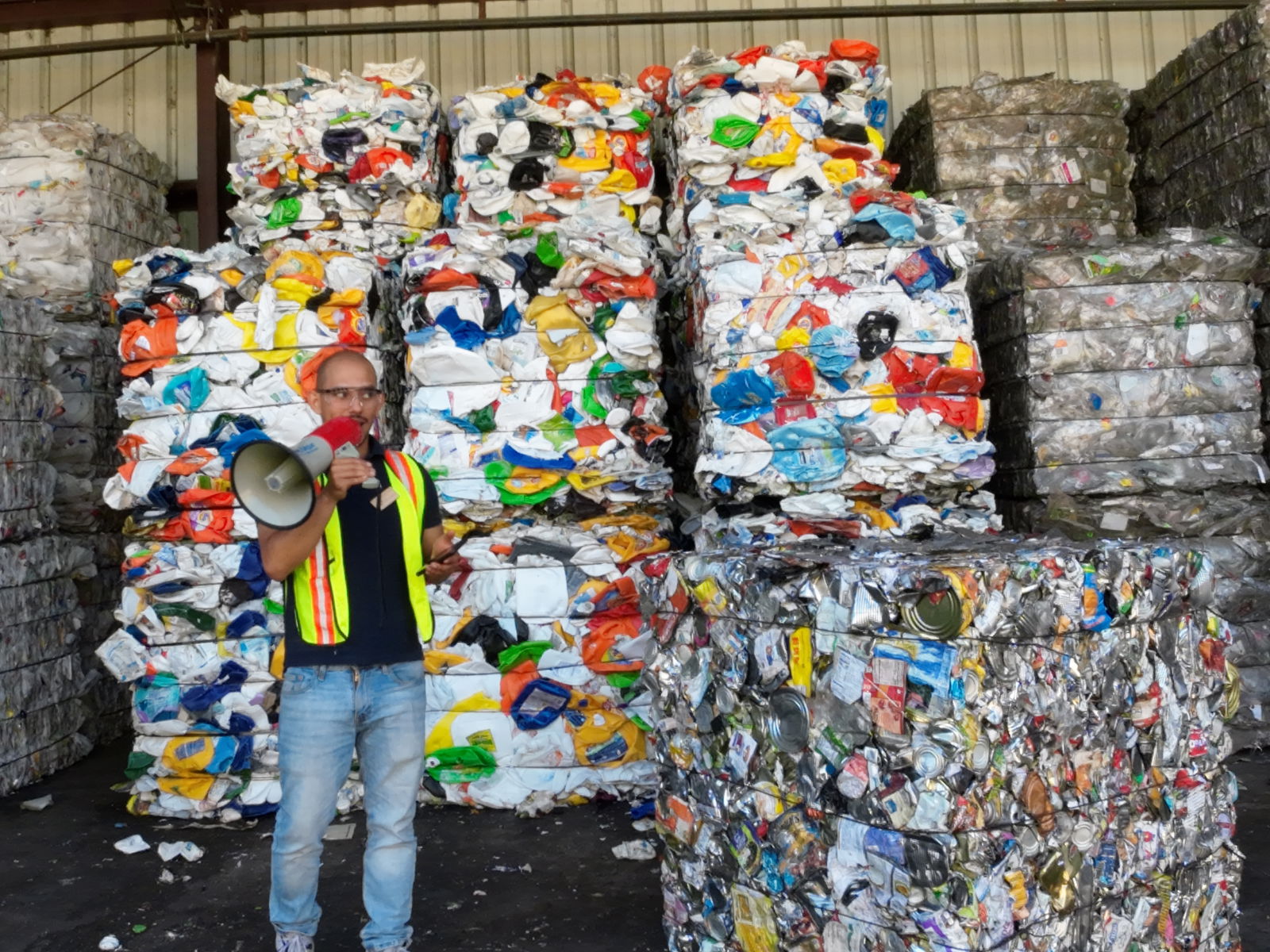
Recycling coordinator for Marin Sanitary Service Carlos Hernandez walks the CNMI delegation through how the facility processes the plastic and aluminum items it receives. Behind and beside Hernandez are bales of plastic and aluminum.
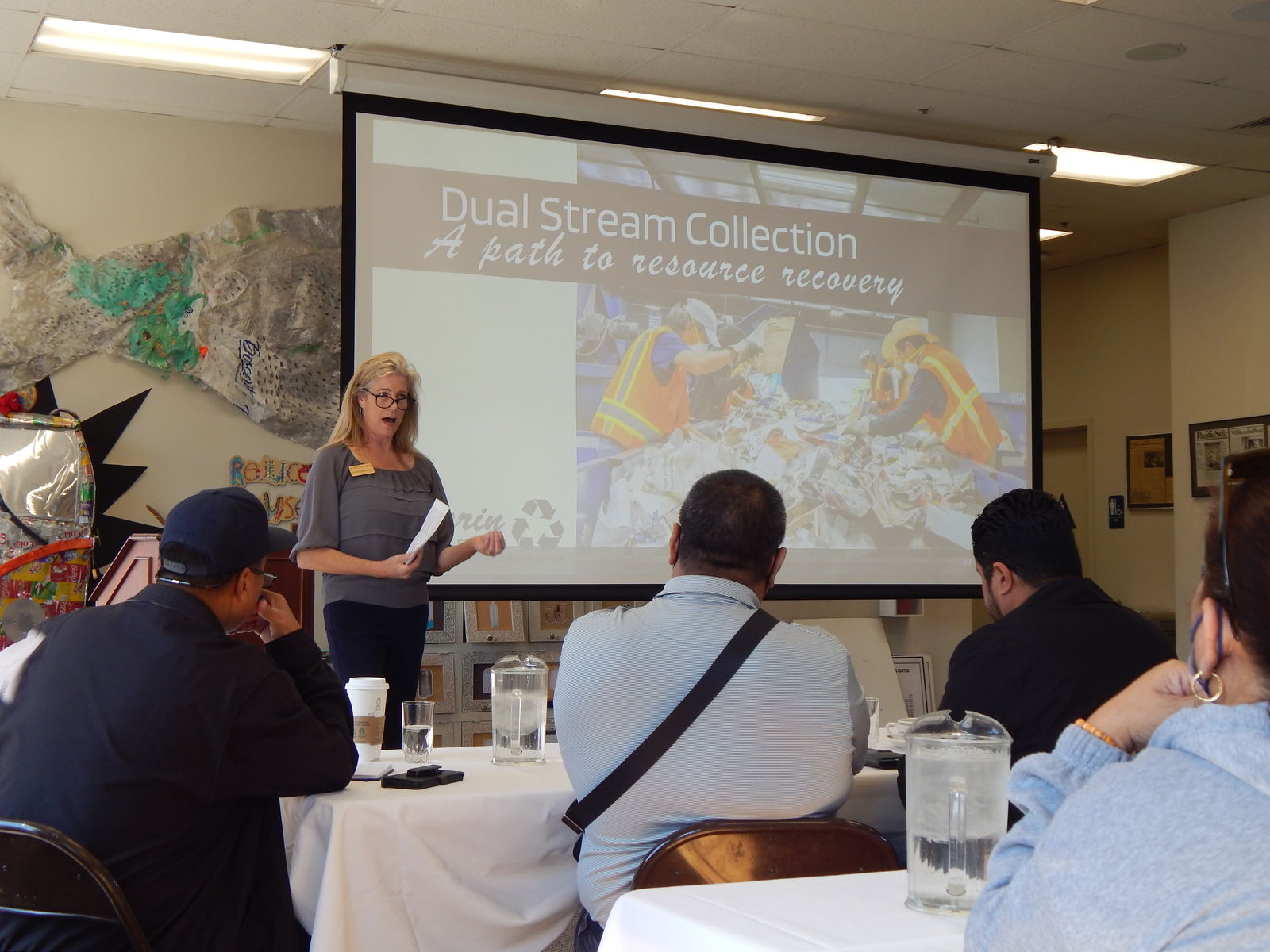
Outreach manager for Marin Sanitary Service Jennifer Selvig makes a presentation on Marin Sanitary Service’s Dual Streem Collection. As part of this service, Marin Sanitary Services has partitioned, two-in-one recycling bins and specially designed garbage trucks that separate recycled bottles, cans, and containers from paper products.
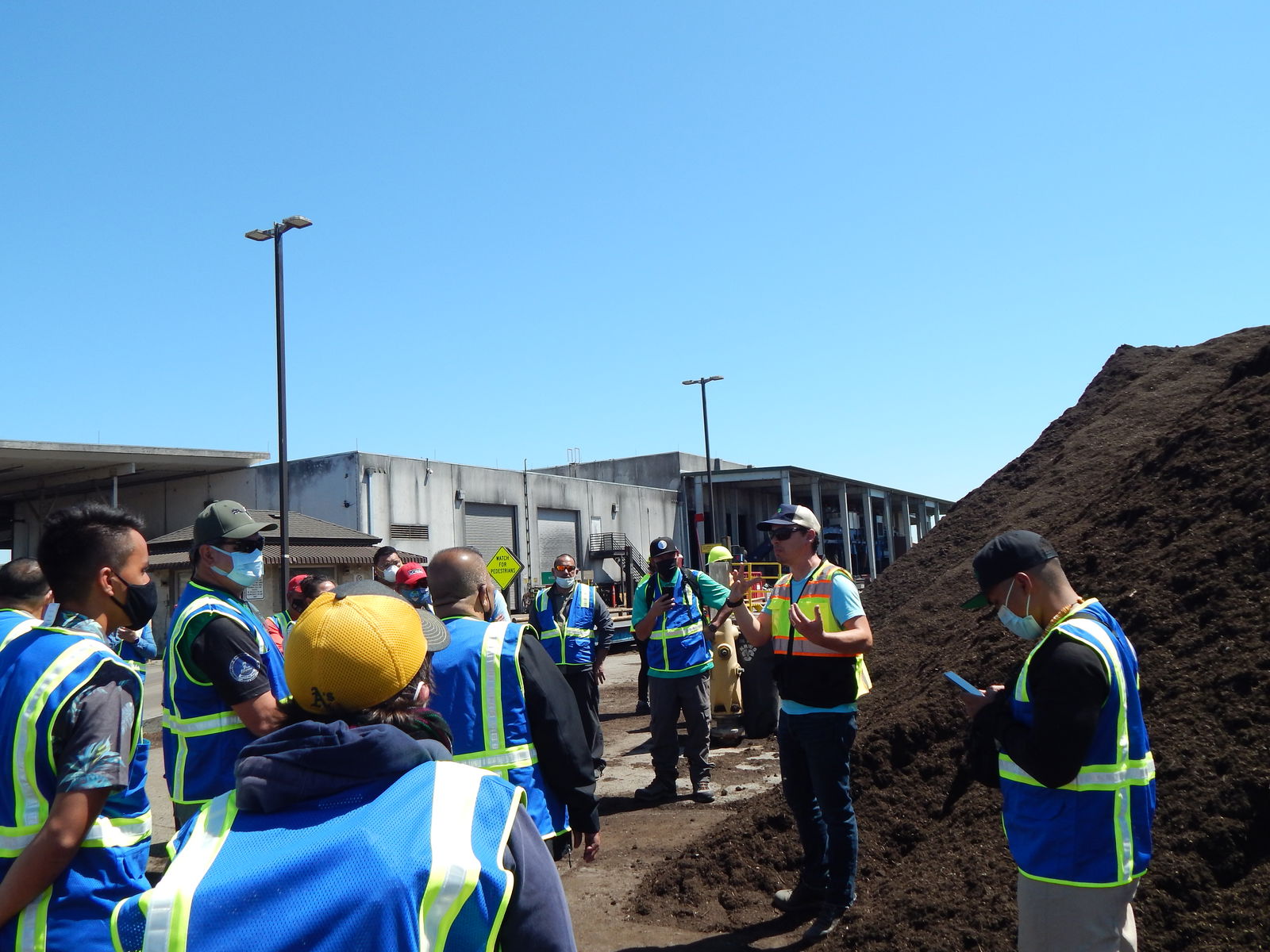
Public education manager for the Napa Recycling and Composting Facility Tim Dewey-Mattia walks the CNMI delegation through how the facility operates and through the facility’s composting process in San Francisco, California.



